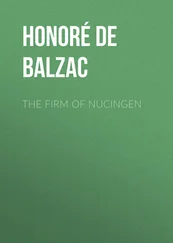Honoré Balzac - Scenes from a Courtesan's Life
Здесь есть возможность читать онлайн «Honoré Balzac - Scenes from a Courtesan's Life» — ознакомительный отрывок электронной книги совершенно бесплатно, а после прочтения отрывка купить полную версию. В некоторых случаях можно слушать аудио, скачать через торрент в формате fb2 и присутствует краткое содержание. Издательство: Иностранный паблик, Жанр: literature_19, foreign_antique, foreign_prose, на английском языке. Описание произведения, (предисловие) а так же отзывы посетителей доступны на портале библиотеки ЛибКат.
- Название:Scenes from a Courtesan's Life
- Автор:
- Издательство:Иностранный паблик
- Жанр:
- Год:неизвестен
- ISBN:нет данных
- Рейтинг книги:4 / 5. Голосов: 1
-
Избранное:Добавить в избранное
- Отзывы:
-
Ваша оценка:
- 80
- 1
- 2
- 3
- 4
- 5
Scenes from a Courtesan's Life: краткое содержание, описание и аннотация
Предлагаем к чтению аннотацию, описание, краткое содержание или предисловие (зависит от того, что написал сам автор книги «Scenes from a Courtesan's Life»). Если вы не нашли необходимую информацию о книге — напишите в комментариях, мы постараемся отыскать её.
Scenes from a Courtesan's Life — читать онлайн ознакомительный отрывок
Ниже представлен текст книги, разбитый по страницам. Система сохранения места последней прочитанной страницы, позволяет с удобством читать онлайн бесплатно книгу «Scenes from a Courtesan's Life», без необходимости каждый раз заново искать на чём Вы остановились. Поставьте закладку, и сможете в любой момент перейти на страницу, на которой закончили чтение.
Интервал:
Закладка:
The Spaniard spoke a few words, in some unfamiliar tongue, to the Asiatic monster, who crept on her knees to Esther’s feet and kissed them.
“She is not merely a good cook,” said Herrera to Esther; “she is a past-master, and might make Careme mad with jealousy. Asie can do everything by way of cooking. She will turn you out a simple dish of beans that will make you wonder whether the angels have not come down to add some herb from heaven. She will go to market herself every morning, and fight like the devil she is to get things at the lowest prices; she will tire out curiosity by silence.
“You are to be supposed to have been in India, and Asie will help you to give effect to this fiction, for she is one of those Parisians who are born to be of any nationality they please. But I do not advise that you should give yourself out to be a foreigner. – Europe, what do you say?”
Europe was a perfect contrast to Asie, for she was the smartest waiting-maid that Monrose could have hoped to see as her rival on the stage. Slight, with a scatter-brain manner, a face like a weasel, and a sharp nose, Europe’s features offered to the observer a countenance worn by the corruption of Paris life, the unhealthy complexion of a girl fed on raw apples, lymphatic but sinewy, soft but tenacious. One little foot was set forward, her hands were in her apron-pockets, and she fidgeted incessantly without moving, from sheer excess of liveliness. Grisette and stage super, in spite of her youth she must have tried many trades. As full of evil as a dozen Madelonnettes put together, she might have robbed her parents, and sat on the bench of a police-court.
Asie was terrifying, but you knew her thoroughly from the first; she descended in a straight line from Locusta; while Europe filled you with uneasiness, which could not fail to increase the more you had to do with her; her corruption seemed boundless. You felt that she could set the devils by the ears.
“Madame might say she had come from Valenciennes,” said Europe in a precise little voice. “I was born there – Perhaps monsieur,” she added to Lucien in a pedantic tone, “will be good enough to say what name he proposes to give to madame?”
“Madame van Bogseck,” the Spaniard put in, reversing Esther’s name. “Madame is a Jewess, a native of Holland, the widow of a merchant, and suffering from a liver-complaint contracted in Java. No great fortune – not to excite curiosity.”
“Enough to live on – six thousand francs a year; and we shall complain of her stinginess?” said Europe.
“That is the thing,” said the Spaniard, with a bow. “You limbs of Satan!” he went on, catching Asie and Europe exchanging a glance that displeased him, “remember what I have told you. You are serving a queen; you owe her as much respect as to a queen; you are to cherish her as you would cherish a revenge, and be as devoted to her as to me. Neither the door-porter, nor the neighbors, nor the other inhabitants of the house – in short, not a soul on earth is to know what goes on here. It is your business to balk curiosity if any should be roused. – And madame,” he went on laying his broad hairy hand on Esther’s arm, “madame must not commit the smallest imprudence; you must prevent it in case of need, but always with perfect respect.
“You, Europe, are to go out for madame in anything that concerns her dress, and you must do her sewing from motives of economy. Finally, nobody, not even the most insignificant creature, is ever to set foot in this apartment. You two, between you, must do all there is to be done.
“And you, my beauty,” he went on, speaking to Esther, “when you want to go out in your carriage by night, you can tell Europe; she will know where to find your men, for you will have a servant in livery, of my choosing, like those two slaves.”
Esther and Lucien had not a word ready. They listened to the Spaniard, and looked at the two precious specimens to whom he gave his orders. What was the secret hold to which he owed the submission and servitude that were written on these two faces – one mischievously recalcitrant, the other so malignantly cruel?
He read the thoughts of Lucien and Esther, who seemed paralyzed, as Paul and Virginia might have been at the sight of two dreadful snakes, and he said in a good-natured undertone:
“You can trust them as you can me; keep no secrets from them; that will flatter them. – Go to your work, my little Asie,” he added to the cook. – “And you, my girl, lay another place,” he said to Europe; “the children cannot do less than ask papa to breakfast.”
When the two women had shut the door, and the Spaniard could hear Europe moving to and fro, he turned to Lucien and Esther, and opening a wide palm, he said:
“I hold them in the hollow of my hand.”
The words and gesture made his hearers shudder.
“Where did you pick them up?” cried Lucien.
“What the devil! I did not look for them at the foot of the throne!” replied the man. “Europe has risen from the mire, and is afraid of sinking into it again. Threaten them with Monsieur Abbe when they do not please you, and you will see them quake like mice when the cat is mentioned. I am used to taming wild beasts,” he added with a smile.
“You strike me as being a demon,” said Esther, clinging closer to Lucien.
“My child, I tried to win you to heaven; but a repentant Magdalen is always a practical joke on the Church. If ever there were one, she would relapse into the courtesan in Paradise. You have gained this much: you are forgotten, and have acquired the manners of a lady, for you learned in the convent what you never could have learned in the ranks of infamy in which you were living. – You owe me nothing,” said he, observing a beautiful look of gratitude on Esther’s face. “I did it all for him,” and he pointed to Lucien. “You are, you will always be, you will die a prostitute; for in spite of the delightful theories of cattle-breeders, you can never, here below, become anything but what you are. The man who feels bumps is right. You have the bump of love.”
The Spaniard, it will be seen, was a fatalist, like Napoleon, Mahomet, and many other great politicians. It is a strange thing that most men of action have a tendency to fatalism, just as most great thinkers have a tendency to believe in Providence.
“What I am, I do not know,” said Esther with angelic sweetness; “but I love Lucien, and shall die worshiping him.”
“Come to breakfast,” said the Spaniard sharply. “And pray to God that Lucien may not marry too soon, for then you would never see him again.”
“His marriage would be my death,” said she.
She allowed the sham priest to lead the way, that she might stand on tiptoe and whisper to Lucien without being seen.
“Is it your wish,” said she, “that I should remain in the power of this man who sets two hyenas to guard me?”
Lucien bowed his head.
The poor child swallowed down her grief and affected gladness, but she felt cruelly oppressed. It needed more than a year of constant and devoted care before she was accustomed to these two dreadful creatures whom Carlos Herrera called the two watch-dogs.
Lucien’s conduct since his return to Paris had borne the stamp of such profound policy that it excited – and could not fail to excite – the jealousy of all his former friends, on whom he took no vengeance but by making them furious at his success, at his exquisite “get up,” and his way of keeping every one at a distance. The poet, once so communicative, so genial, had turned cold and reserved. De Marsay, the model adopted by all the youth of Paris, did not make a greater display of reticence in speech and deed than did Lucien. As to brains, the journalist had ere now proved his mettle. De Marsay, against whom many people chose to pit Lucien, giving a preference to the poet, was small-minded enough to resent this.
Читать дальшеИнтервал:
Закладка:
Похожие книги на «Scenes from a Courtesan's Life»
Представляем Вашему вниманию похожие книги на «Scenes from a Courtesan's Life» списком для выбора. Мы отобрали схожую по названию и смыслу литературу в надежде предоставить читателям больше вариантов отыскать новые, интересные, ещё непрочитанные произведения.
Обсуждение, отзывы о книге «Scenes from a Courtesan's Life» и просто собственные мнения читателей. Оставьте ваши комментарии, напишите, что Вы думаете о произведении, его смысле или главных героях. Укажите что конкретно понравилось, а что нет, и почему Вы так считаете.












